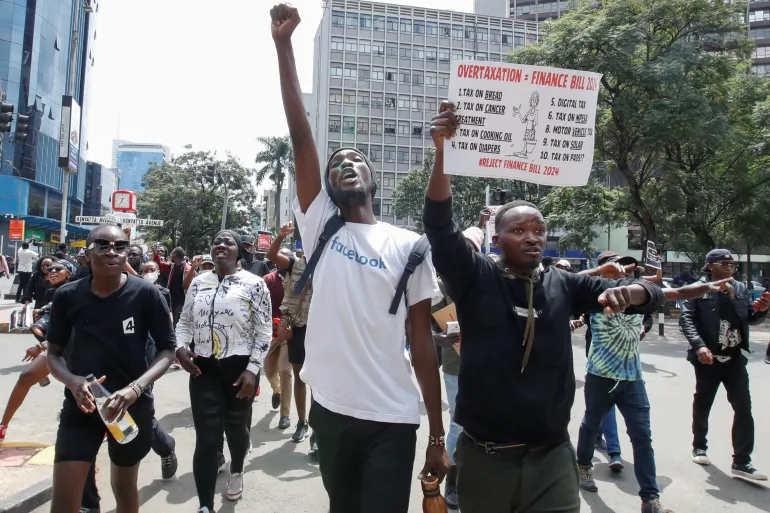Kenya Cancels Tax Increases After Nairobi Protests
Kenya’s government has withdrawn several controversial tax proposals following widespread public outcry and protests in Nairobi. The presidency announced amendments to the Finance Bill amid escalating tensions that saw police deploying tear gas against demonstrators near the parliament building.
The revised Finance Bill no longer includes a proposed 16 percent value-added tax (VAT) on essential items such as bread, transportation of sugar, financial services, and foreign exchange transactions.
Additionally, the contentious 2.5 percent Motor Vehicle Tax has been scrapped, marking a notable concession by President William Ruto’s administration in response to mounting opposition.
Protesters, under the banner of “Occupy Parliament,” gathered in defiance of police orders, resulting in the arrest of 210 individuals, including demonstrators, journalists, and human rights observers.
Civil society groups, including Amnesty Kenya, condemned the arrests and demanded the immediate release of all detainees, emphasizing the right to peaceful assembly guaranteed by the Kenyan Constitution.
Critics argue that the proposed tax measures would have disproportionately burdened low-income Kenyans already grappling with economic hardships. Opposition leader Raila Odinga denounced the bill as exacerbating poverty and discouraging investment, urging legislators to scrutinize and amend the legislation during upcoming debates.
President Ruto defended the initial tax proposals as necessary steps towards fiscal self-sustainability, citing the imperative to reduce reliance on borrowing. However, the government’s retreat underscores the intensity of public resistance and the political challenges in navigating economic policy amid broader social discontent.
The Finance Bill amendments will now face legislative scrutiny over the coming days, with lawmakers expected to deliberate on the revised budgetary provisions amidst continuing public scrutiny and civil society vigilance.
Source: Al Jazeera



